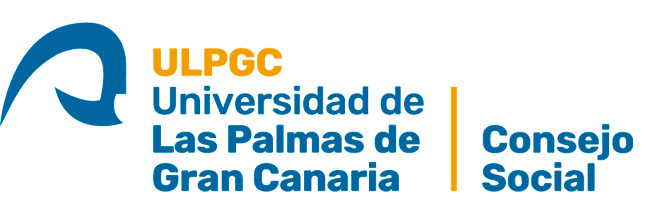The plenary has approved these measures as a result of the economic and health crisis caused by COVID-19.
The 2020 ULPGC Barometer Survey was presented, this edition aimed at consulting the opinion of the administration and services staff (PAS) regarding various aspects of the University, including their perception of the University and its governance.
The Social Council plenary has approved a number of extraordinary measures concerning university students’ progression and continuation of studies, with students required to accept a greater shared responsibility regarding their level of dedication and, consequently, in their selection of the subjects which they wish to study and be examined in.
This agreement has been adopted in the face of the existing uncertainty generated by the economic and health crisis families are currently experiencing and which is affecting the process of teaching and learning for students, due to the presence of an environment which is less suited to education. The extraordinary measures will be effective from the declaration of the state of alarm, differentiating between actions for this academic year and those for the following academic year (2020/2021).
During the plenary, the chairman of the Social Council, Jesús León Lima, highlighted that, “the ULPGC Social Council cannot be oblivious to this situation, in which both the teaching and research staff and the administration and services staff of the Canary Island’s public university system have and continue to go to great lengths in order to carry on providing public higher education”.
“However, it is also right to recognise the dedication and responsibility of the students who have made an effort to continue their education within a very demanding situation”, the chairman added.
Therefore, the ULPGC Social Council has been sensitive to the key demands of the University’s Student Council and is facilitating the monitoring of teaching within the current remote teaching situation.
Ada Santana, president of the Student Council and member of the Social Council plenary, expressed gratitude for the dialogue displayed by the Social Council and its members concerning this issue. “We have come to an agreement which is very beneficial for ULPGC students, significantly lowering expectations with extraordinary measures regarding the regulations for Academic Progression and the Right to Continue Studying [Normas de Progreso y Permanencia], measures which are very specific and whose implementation is very feasible for the end of this academic year and the beginning of the next and we are, therefore, very satisfied”.
Moreover, in this agreement with the Student Council, the ULPGC Social Council also agreed to the promotion of policies concerning grants and financial support, which encourage those students with financial difficulties as a result of the economic crisis caused by COVID-19 to continue their studies; and to act as an interface with the Canary Islands’ productive sector, to increase the number of businesses where students can carry out external work placements.
Click here to see the agreement (only in spanish).
Click here to access the comparative summary with the approved measuresulse (only in spanish).
The 2020 ULPGC Barometer Survey – administration and services staff
Also presented during yesterday’s plenary was the new ULPGC Barometer Survey, commissioned by the ULPGC Social Council. This edition is aimed at learning the views and opinions of the University’s administration and services staff (PAS) regarding their own work and the University’s activity, its governance, and the courses offered, among other areas of interest.
For this new Barometer Survey, the fifth published by the Social Council, 357 of the University’s public employees were surveyed. This represents 42% of the PAS and constitutes a very representative sample, which also guarantees a margin of error of below 4%.
Included in the key conclusions highlighted by the authors of this survey, the ULPGC lecturers and experts Jorge Rodríguez Díaz and José Juan Castro Sánchez, is the positive working atmosphere among the ULPGC administration and services staff. This follows high ratings concerning their relationship with students (7.8 out of 10), with their line manager (7.8), with their other colleagues (7.5) and with the teaching and research staff (6.9). Moreover, this group rates the general education system more negatively (21.2%) than positively (13.3%) and the majority rate it as average (65.5%). However, they highlight the positive rating of the university education offered by the ULPGC, at 22% compared to 13.6% which rate it negatively.
The study also registers a certain dissatisfaction with some areas of the University’s governance, as indicated by the low level of agreement with statements such as “in the ULPGC, administration and services staff are adequately listened to by management” (1.92 on a scale of 1 to 5), “in the ULPGC, administration and services staff have a voice in decision making” (1.93), “I am satisfied with how the ULPGC is managed by the Rectorate and its governing bodies” (2.33), and “in the ULPGC, sufficient information is provided regarding management and decisions” (2.36).
Finally, and in general terms, the key positive evaluation of the ULPGC administration and services staff alludes to the existence of mechanisms for the internal monitoring of the University’s management. Furthermore, among their main suggestions, 28.8% propose a substantial improvement in teaching quality, 25.6% the improved organisation of resources, and 18.8% greater dedication from the teaching staff.
About the Social Council
The University of Las Palmas de Gran Canaria’s Social Council is society’s participatory body within the University, which acts as an interface between society and the University with the aim of ensuring a suitable connection between academic and research pursuits, and the intellectual, cultural, societal, scientific, economic, and employment needs of the Canary Islands.


